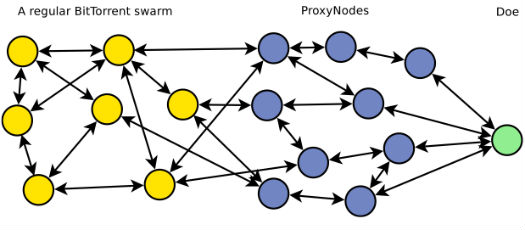TorrentFreak Email Update |
| RIAA Demands Unlimited DMCA Power From Google Posted: 02 Jun 2012 03:02 AM PDT
The Mountain View search engine is being lambasted by the Washington DC lobby group for not being proactive enough with the tools they have provided to deal with the alleged copyright infringements of completely unconnected third parties. Worse, it’s claimed that Google are actively hindering the RIAA, because they're not allowing the industry group free reign to have each and every suspect link terminated perpetually. When Google published their report on DMCA takedowns last week, the RIAA was unimpressed. In fact, they were so unimpressed by the average of ONLY 3,400+ links taken down each and every day, that they did what any well-connected lobby group would do – it took to its blog and wrote a top-5 list of facts on why it's ALL GOOGLE’S FAULT! Fact 1Google places artificial limits on the number of queries that can be made by a copyright owner to identify infringements. Because nothing says "problem sorted" like allowing someone else’s bots unrestrained access to your data. Of course, the RIAA should be free to run as many search bots as they want, potentially hindering the search engine’s core business as they hunt down potentially infringing links. The RIAA is after all a big fan of DDOS's, having been been the target of a few themselves. And it is better to give, than to receive, which is why the RIAA would like the ability to share one with the Google links database. Fact 2Google also limits the number of links we can ask them to remove per day. As we’ve seen before, nothing says "accuracy" like a stream of bot-generated links. It’s impossible to churn out an unlimited number of links with human oversight, and we've see how well that's worked in practice, time and again. Since such takedowns are meant to be submitted under ‘penalty of perjury’, it's clear that Google is just looking out for the RIAA, preventing them from committing so many perjurious acts that penalties would have to be enforced. Thanks to Google, the RIAA is being saved from itself. Fact 3The constraints Google has placed on the tools they promote to deter infringement are well below what is necessary to identify and notice infringements on the Billboard top 10, much less the entire catalog of the American creative community. If the number of takedowns were so limited, and so inadequate, then surely better care would be taken to ensure accuracy. Earlier this year, in a submission to the New Zealand Government, Google noted that 37% of DMCA notices it received were not valid claims, and 57% targeted a competitor. Perhaps if these notices were better used, there would be enough to do what the RIAA wants. And yes, apparently the RIAA speaks for the entire ‘American creative community’ now. Fact 4Google claims that the DMCA notices it has received for a site represent less than 0.1% of the links it had indexed for the domains at the top of this list. But this number is misleading given the constraints imposed by Google on a copyright owner's ability to find infringements and send notices to Google. Since Google indexes so many links using their own resources, it's just not right that the RIAA can't have unlimited use of those same resources, for free of course. As already discussed, it's clear that were the RIAA able to have a freer hand to determine what Google can and can't index, there would be a lot more than 0.1%. Where there's 0.1%, they’re sure that it could be 10%, and if there's 10%, then there might well be 100%. However, those restrictions prevent the RIAA from filing those notices, or even finding out. And the 37% of claims that are false? They are just collateral damage, for the Greater Good, nothing to worry about, much less do anything about. Besides, the RIAA knows best, and is just looking out for artists, honest! Fact 5If "take down" does not mean "keep down," then Google's limitations merely perpetuate the fraud wrought on copyright owners by those who game the system under the DMCA. Finally, how DARE content be re-indexed if a notice has been filed? The RIAA's position is CLEAR on this – a DMCA notice is a permanent ban on that content ever being indexed by Google again. It doesn't matter who uploaded it, if it was a fan with a bootleg before and now it's an official release, or even if it’s just entered the public domain or someone else has taken over the rights, it simply cannot reappear. No matter what the copyright status is, once someone has filed a notice against it, that content should be completely banned from the internet. Because otherwise it’s a fraud on copyright owners, and not the kind where RIAA members claim the copyright for stuff they don't own the rights to, or prevent the rights holder from using their own work, or lie to law enforcement to get goods seized. That kind of ‘copyright fraud’ is clearly acceptable, unlike the former examples. Sending almost 2-in-5 DMCA notices that are bogus, safe in the knowledge that false claims won't be punished is another fine example of how to game the spirit of the DMCA in an acceptable manner. If the tone here has verged into the absurd, there’s probably a good reason. The RIAA’s demands are sheer lunacy. If the RIAA wants its demands to be heard, then first it needs to get its own house in order, before their abuses of the law are noticed and wipe them out. To blame Google for their own shortcomings is more of the same myopia that has left them playing catchup for the last 13 years, but who is surprised by that any more? Source: RIAA Demands Unlimited DMCA Power From Google |
| Researchers To Release an Anonymous BitTorrent Client Posted: 01 Jun 2012 10:33 AM PDT
For a monthly fee they can sign up with a VPN or proxy to hide their IP-address. Free options with decent speeds or without other restrictions aren’t easily available. This lack of fast, unlimited and free anonymous BitTorrent options is what the Tribler team at Delft University of Technology are hoping to change. Their Tribler client has been around for more than half a decade already, and during that time it’s developed into the only truly decentralized BitTorrent client out there. Unlike traditional BitTorrent clients, Tribler does not rely on central servers or third-party sites. Users can search, download and moderate files from within the application itself, based on pure peer-to-peer communication. Quite a remarkable achievement, but it’s also just the beginning for the research team. During a talk at the Stanford University this week, Dr. Johan Pouwelse talked about the past and the future of Tribler, announcing the ambitious play to add make BitTorrent transfers more private. Talking to TorrentFreak, Pouwelse explained that the idea is to add a proxy layer where proxies act as “caches” of content. This can hugely improve downloads speeds, but also makes BitTorrent downloads more private. “Our goal is to provide all users with the download speed which today can only be found in private BitTorrent communities, combined with the privacy that is currently only offered by paid VPN services,” said Pouwelse. BitTorrent With a Proxy Layer
The Triber team has been perfecting the technology for years and it’s expected to be released in two or three months. Initial tests show that even with the added anonymity, people don’t have to sacrifice speed at all. Quite the contrary. “Experimental results have shown that the performance of the proposed mechanism is better than that of regular BitTorrent in a large number of scenarios. At the same time, the proxy layer can be used to offer the users a shield of plausible deniability enhancing their privacy,” Pouwelse told us. With the new code Tribler says it outperforms other clients such as uTorrent in download speeds. Ultimately, the researchers hope to compete with on-demand video services such as YouTube. “BitTorrent has served us well for 11 years, but modern features such as YouTube-like easy streaming, sharing of your 1 Terabyte harddisk and solid anonymity are needed. The BitTorrent protocol simply does not scale to safe private sharing of 1 Terabyte, which would begin to bridge the gap between the wealth of content on YouTube versus the weak archive capability of BitTorrent.” Helped by money from European tax payers, the “understaffed” team say they are now at a point where Tribler can compete with some of the fastest centralized services. Their P2P streaming technology is currently under consideration to become an official Internet standard and is being actively tested by major broadcasting companies including the BBC. The Tribler proxy layer is expected to be implemented this fall, but those who want to give the current version of Tribler a spin are welcome download it here. The client is completely Open Source and has a version for Windows, Mac and Linux. Source: Researchers To Release an Anonymous BitTorrent Client This posting includes an audio/video/photo media file: Download Now |
| You are subscribed to email updates from TorrentFreak To stop receiving these emails, you may unsubscribe now. | Email delivery powered by Google |
| Google Inc., 20 West Kinzie, Chicago IL USA 60610 | |


 Poor Google can't do anything right in the RIAA's eyes.
Poor Google can't do anything right in the RIAA's eyes.
 BitTorrent users are increasingly looking for more anonymity but right now their options are limited.
BitTorrent users are increasingly looking for more anonymity but right now their options are limited.
No comments:
Post a Comment